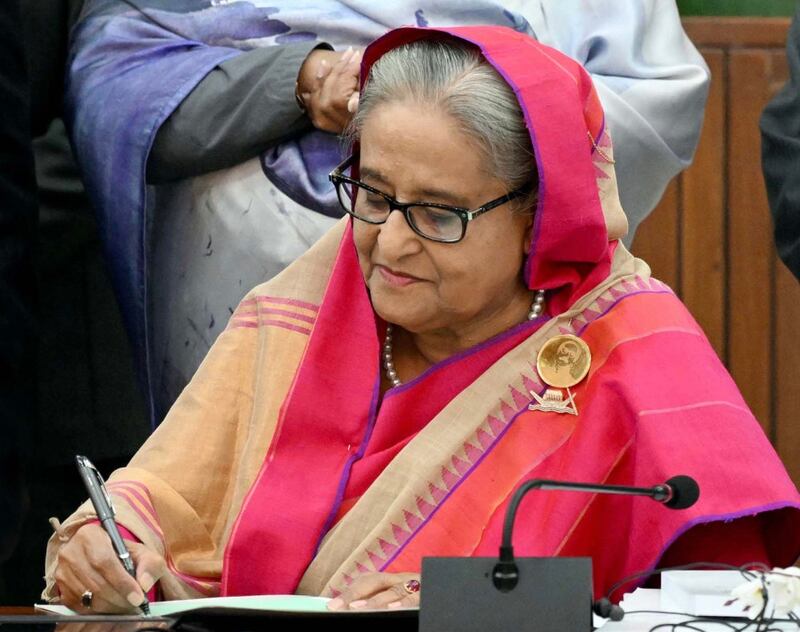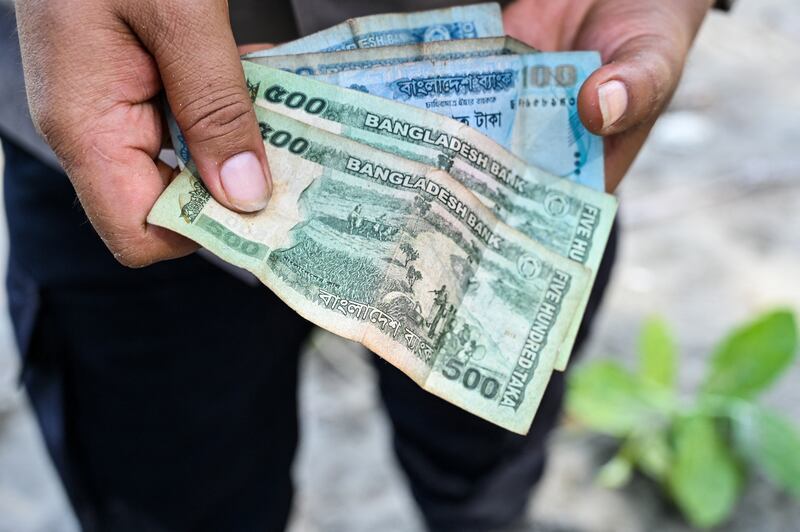Bangladesh’s government, in trying to boost revenue, is proposing to offer an amnesty with a big tax incentive to people who haven’t declared their assets, the finance minister announced Thursday as he unveiled next year’s planned budget.
But critics said this would be a state-sponsored program that promotes corruption by allowing rich people who have accumulated “black money” through questionable means to get off the legal hook and be taxed far less than most citizens.
In his budgetary speech to Parliament, Finance Minister Abul Hassan Mahmood Ali proposed a spending plan of 7.98 quadrillion taka (U.S. $68 billion) for the fiscal year beginning July 1. The budget shows an increase of about 5% from this year’s 7.61 quadrillion taka ($64.8 billion) spending plan.
“It is necessary to keep the country’s economy dynamic in the changing economic situation due to the ongoing global crisis. In order to generate and sustain effective demand in the economy, we need to provide more revenue on the one hand to generate sufficient public spending and on the other hand to keep the economic activity dynamic in the private sector,” Mahmood Ali told MPs.
The spending proposal would allow holders of previously undeclared wealth such as securities, cash and bank deposits to claim them and pay a 15% tax.
Under the plan, regular taxpayers would be taxed at 30% of their declared incomes – up 5% from this year.
“In this situation, I propose to add a clause on tax incentives in the Income Tax Act with a view to providing taxpayers with an opportunity to correct this error in their income tax returns and to increase the flow of money into the mainstream of the economy,” Mahmood Ali said.
The proposed amnesty scheme, the first in four years, comes as Bangladesh faces a foreign currency crisis and an acute shortage of liquidity at banks.

MPs are expected to hold discussions about the spending plan, which Parliament must adopt by June 30, the last day of this fiscal year. A leading lawmaker who previously served as finance minister expressed support for the plan.
“A huge amount of money has gone into the wrong hands. We need to bring the money back to the economy,” A.H.M. Mustafa Kamal, chairman of a parliamentary standing committee on the finance ministry, told BenarNews.
“Investment of the undisclosed money can create jobs, spur economic growth and reduce poverty,” said Mustafa Kamal who had offered a similar amnesty program, but with higher interest rates, four years ago.
“If we do not make a lucrative offer, the money would not come to the system – the money will go elsewhere.”
‘In no way acceptable’
But critics are crying foul.
Ahsan H. Mansur, executive director of the Policy Research Institute, a private think-tank, accused the state of taking “the side of the corrupt people” as he urged the government to dump the proposal.
“What sort of offer is this? The genuine and honest taxpayers will be paying 30% tax and the corrupt people, black money holders and money launderers 15%? This can be called a state-sponsored scheme to promote corruption,” Mansur told BenarNews.
The offer by Prime Minister Sheikh Hasina’s government to engage in the wholesale “whitening” of the so-called “black money” while talking about fighting corruption are contradictory, he said.
“The government must clearly say which side they would prefer – corruption or anti-corruption. Only lip service against corruption will not convince people.”

Despite critics’ concerns, the government has allowed the process since the late 1970s by using the term “undisclosed money,” according to data from the national board of revenue. The process was used to tax at least 364 billion taka ($3.15 billion) between 2009 and 2022.
‘Whitening’ dirty money
Iftekharuzzaman, executive director of the Transparency International Bangladesh, also rejected the proposal.
“The offer to whiten black money is in no way acceptable to the people, irrespective of the government’s explanations. This offer incentivizes the corrupt people and encourages corruption in Bangladesh,” he told BenarNews.
In his view, this will encourage people to “earn money by every corrupt means” and whiten their dirty money by year’s end.
“The genuine taxpayers will pay up to 30% tax against their white money while the corrupt people will give 15% tax against the black money. Thus, the offer causes discrimination among citizens,” he said.
Iftekharuzzaman also questioned the legality of the latest proposal.
“This is against two articles of the Bangladesh Constitution – Article 20 which prohibits any citizen from enjoying unearned income and another article which guarantees that law must not be discriminatory,” Iftekharuzzaman said.
